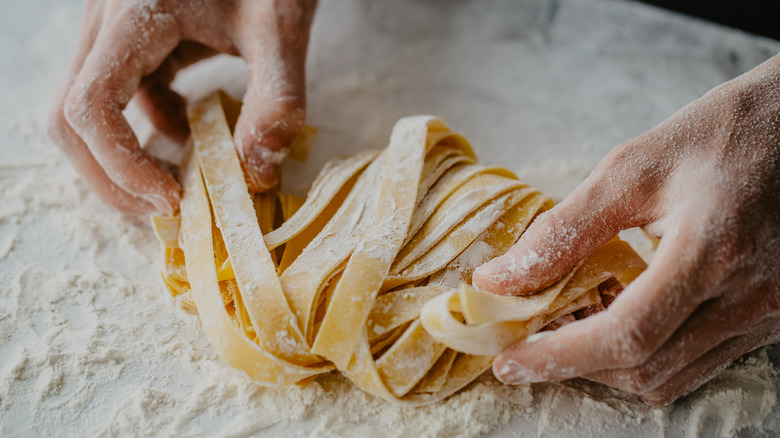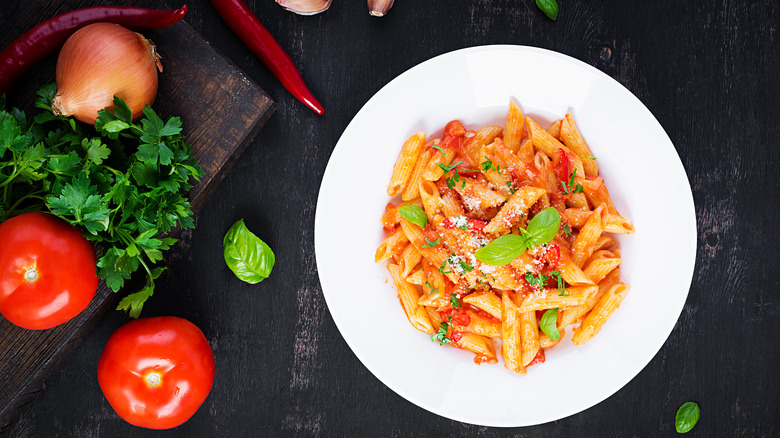Why Fresh Pasta Isn't Always Better Than Dried Pasta
There's no debating that pasta is an essential element of La Dolce Vita (The Sweet Life). And common knowledge would assume that it would always be fresh pasta being served there. But in reality, freshness isn't always better when it comes to pasta. There's something that feels more romantic about a fresh pasta, like there's a little Italian Nonna in the back of every restaurant rolling out a fresh sfoglia with her mattarello. According to Serious Eats however, dried pasta is just as good as fresh, and both types play different roles in Italian cuisine.
There are several differences between the two pastas, but they mostly come down to how they are made. Dried pasta is made with only semolina flour, water, and salt, shaped by being pushed through bronze cast dies, and dried for a longer shelf life (via Paesana). Fresh pasta on the other hand usually includes an egg in its dough and has a much more delicate and smooth consistency. These differences in crafting make for two very different kinds of pasta.
When to use fresh or dried pasta
Dried pasta typically has a rougher surface (via Paesana). This is because of the extrusion die process, and also because it has been left to dry. These factors create a rougher, chewier, and more durable pasta. It has a longer shelf life as well. Certain sauces can cling to the surface of dried pasta better, and it can be cooked to the perfect al dente texture.
Fresh pastas are much softer, smoother, and have a slightly richer taste. This mostly comes from the addition of the egg. Those added fats change the dough's flavor and texture significantly. It won't be cooked to have the bite of al dente either.
These differences make it important to match the type of pasta to its sauce, the same way you match the shape of pasta to the right sauce. Fresh pastas are best suited for rich, creamy dishes that use butter for their base. The richer, softer flavor of the pasta matches recipes that use dairy extremely well (via Pasta Evangelists). Dried pasta on the other hand is suited to thicker meat sauces.
Both fresh and dried pastas have their place in the pantheon of Italian foods, and the most important thing is to know how each is used.

